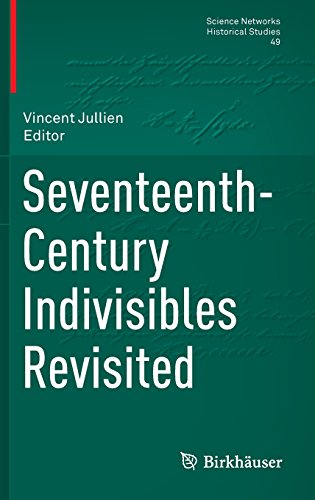

Most ebook files are in PDF format, so you can easily read them using various software such as Foxit Reader or directly on the Google Chrome browser.
Some ebook files are released by publishers in other formats such as .awz, .mobi, .epub, .fb2, etc. You may need to install specific software to read these formats on mobile/PC, such as Calibre.
Please read the tutorial at this link: https://ebookbell.com/faq
We offer FREE conversion to the popular formats you request; however, this may take some time. Therefore, right after payment, please email us, and we will try to provide the service as quickly as possible.
For some exceptional file formats or broken links (if any), please refrain from opening any disputes. Instead, email us first, and we will try to assist within a maximum of 6 hours.
EbookBell Team

5.0
80 reviewsThe tremendous success of indivisibles methods in geometry in the seventeenth century, responds to a vast project: installation of infinity in mathematics. The pathways by the authors are very diverse, as are the characterizations of indivisibles, but there are significant factors of unity between the various doctrines of indivisible; the permanence of the language used by all authors is the strongest sign.
These efforts do not lead to the stabilization of a mathematical theory (with principles or axioms, theorems respecting these first statements, followed by applications to a set of geometric situations), one must nevertheless admire the magnitude of the results obtained by these methods and highlights the rich relationships between them and integral calculus.
The present book aims to be exhaustive since it analyzes the works of all major inventors of methods of indivisibles during the seventeenth century, from Kepler to Leibniz. It takes into account the rich existing literature usually devoted to a single author. This book results from the joint work of a team of specialists able to browse through this entire important episode in the history of mathematics and to comment it.
The list of authors involved in indivisibles´ field is probably sufficient to realize the richness of this attempt; one meets Kepler, Cavalieri, Galileo, Torricelli, Gregoire de Saint Vincent, Descartes, Roberval, Pascal, Tacquet, Lalouvère, Guldin, Barrow, Mengoli, Wallis, Leibniz, Newton.